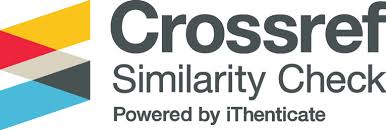E-Government: Integrated, Fast, Certain and Easy Public Service Quality Management in Bali
Abstract
Purpose – Electronic-Based Government System is a government administration that utilizes information and communication technology to provide services to the public. The application of an electronic-based government system plays an important role in accelerating the achievement of government goals in public sector services and contributing to regional economic growth.
Methodology – This study uses a quantitative descriptive research method. Researchers conducted an analysis of digital transformation in Bali in improving the quality of public services through the implementation of E-Government. An analysis of e-government seen from the perspectiveGovernment to Citizen (G2C) andGovernment to Bussiness (G2B)
Findings – This research places the community as the main user of government-owned public services and the government as a service provider. The results of this study describe that e-government has an important role in improving integrated public services, among others. Improving the accessibility of public services; Improving service efficiency and effectiveness; Increase transparency and accountability; as well as increasing community participation.
Originality – Originality produces new knowledge without repeating what has already been done by others.
References
Alshehri, M., & Drew, S. (2010). E-government fundamentals. Proceedings of the IADIS International Conference ICT, Society and Human Beings 2010, Part of the IADIS Multi Conference on Computer Science and Information Systems 2010, MCCSIS 2010.
Bertucci, G. (2008). UN e-Government Survey: From e-Government to Connected Governance. In New York: United Nations.
Kementerian Komunikasi dan Informatika Republik Indonesia. (2016). Rencana Aksi Nasional E-Government Indonesia 2016-2019.
Nguyen, M. H. (2014). A Study on Evaluation of E-Government Service Quality. International Journal of Social, Management, Economics and Business, Engineering.
Susanto, A., & Bahaweres, R. B. (2013). Preliminary research on e-government development overview: An assessment on e-Government capabilities in Indonesia. 2013 International Conference of Information and Communication Technology, ICoICT 2013. https://doi.org/10.1109/ICoICT.2013.6574617
Scholl, H. J., & Klischewski, R. (Eds.). (2018). Electronic Government and Electronic Participation: Joint Proceedings of Ongoing Research and Projects of IFIP EGOV and ePart.
United Nations. (2020). E-Government Survey 2020. Digital Government in the Decade of action for sustainable development. In UN E-Government Knowledgebase.
UN E-Government Survey 2016: E-Government in Support of Sustainable Development.
World Bank. (2016). Digital Government: Building a Performance-Based Service Delivery Model.
Zaidi. (2004). Assessing e-government service & trust: government to citizen. Int. Conf. Digit., 28–31.











